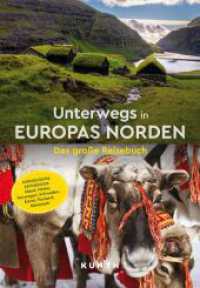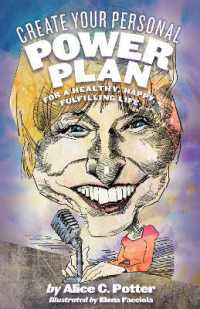Full Description
Disrupting Developmentalism in Canadian Early Years Education challenges dominant discourses about children and childhood by centring marginalized and subjugated voices, experiences, and knowledges. Confronting systemic white supremacy, cis-heteronormativity, ableism, and sanism rooted in developmental psychology, the authors invite educators to imagine new possibilities for understanding children, childhood, and education. The collection explores critical activist knowledges for disrupting developmentalism through contributions from teachers, practitioners, and educators, including narratives and lived experiences. This text will be an invaluable resource for early childhood education, teacher education, and child and youth studies programs in Canadian colleges and universities with courses focusing on child development, equity, diversity, inclusion, critical perspectives and/or contemporary issues in early childhood education.
Contents
Foreword
Introduction: Disrupting Developmentalism to Create Space for New Knowings and Becomings in Early Childhood Education
Chapter 1: Struggling with the Work of the Pedagogist in Canada: Subtracting Early Childhood Education from Child Development
Chapter 2: In the Threshold of a Cruel and Humble Optimism—Contesting Developmentalism Through Critical Disability Studies
Chapter 3: (Re)Imagining Human Development: Opening Decolonizing Possibilities Through a Post-Secondary Educational Psychology Course
Chapter 4: "Every Child Matters": Canadian Pre-Service Teachers' Critical Engagement with Indigenous Life-Narrative Picture books
Chapter 5: Honouring the Learning Spirit of Indigenous Children in Early Education
Chapter 6: Decolonizing a Linear Conception of Teacher Education: Disrupting Developmental Paradigms Through an Ethics of Care
Chapter 7: Re-storying of an Immigrant Child in Canada: Exploring Pedagogical Criticalities in Problematizing the Dominant Clinical Discourses
Chapter 8: Disrupting Developmentalism through Queer Theory in Post-Secondary Early Childhood Education: A Document Analysis
Chapter 9: "So That's When I Started to Feel the Passion in My Heart Start to Evolve": Being Cared About and Caring For Pedagogy Through a Feminist Care Ethics
Chapter 10: Objections to Objective List Theories and Development As Well-being
Chapter 11: Decolonizing our Understanding of Indigenous Children and Learning
Chapter 12: Is Psychoanalysis Developmentalism? Some Thoughts on Encounters with Psychoanalytic Theory
Chapter 13: Toward an Ex-Colonial Childhood: Collective Exits from Colonialisms in Mi'kmaw Literatures
Chapter 14: Deconstruction of the "At-Risk" Designation: Synthesis of a Critical Discourse Analysis
Chapter 15: Decolonizing Canadian Elementary Teacher Education: Connection-Based Learning, Critical Reflexivity, and Social Justice
Chapter 16: From Parenting "Expert" to Parenting Ally: Re-examining the Role of the Early Childhood Educator Through a Family-Centred Framework
Chapter 17: Disrupting Developmentalism by Cultivating Wisdom
Chapter 18: Troubling Educators' Humanist Assumptions: Possible (Re)configurations of Authority Through the Intra-Actions of Children and Classroom Chairs
Conclusion: "Develop Me!"—A Contrarian Poem for Non-Developmental Futurities in Early Childhood Education and Beyond
Contributor Biographies







